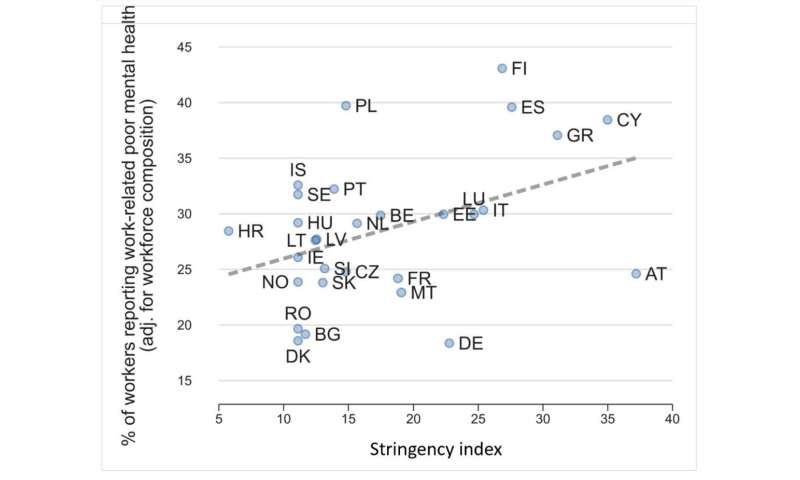Increase in work-related stress in the wake of COVID-19 pandemic: Report

The COVID-19 pandemic has had and continues to have a profound impact on the world of work in Europe. In a new report for the European Agency for Safety and Health at Work (EU-OSHA), researchers from the University Hospital Düsseldorf have analyzed data on mental health at work collected in 2022 across 29 European countries (all EU Member States plus Iceland and Norway).
The analyses show that 44% of employees across Europe reported an increase in work stress as a result of the pandemic and that around a quarter (26.8%) of employees reported work-related mental health problems.
The results also indicate that employees in specific sectors were more affected by an increase in work stress and work-related mental health problems, particularly those working in health care, nursing, or service occupations.
At the same time, the results underline the importance of measures to promote occupational safety and health (OSH measures). Specifically, the results suggest that employees who report OSH measures at work (e.g., availability of psychosocial counseling at work) are less likely to report an increase in work stress. Another interesting finding of the country comparisons was that countries where a high proportion of companies had implemented protective and supportive measures before the pandemic also showed a lower increase in work stress during the pandemic.
Overall, Nico Dragano and Morten Wahrendorf, the researchers from the University Hospital Düsseldorf, interpret the results as follows: "It is possible to protect employees from stress even in times of crisis if companies and employers implement health protection measures."
More information:
Report: Mental health at work after the COVID pandemic
Provided by Heinrich-Heine University Duesseldorf